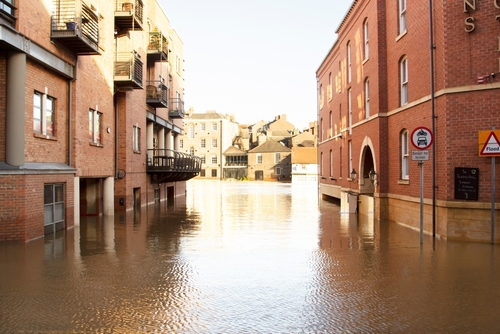Most home insurance policies will provide some cover for damage caused by flooding, along with cover for any possessions that might be destroyed and damaged. Your home insurance policy may also provide cover for you to find temporary accommodation if your home’s inaccessible due to floodwater.
However, it’s important to ensure you know exactly what you’re covered for, and exactly what you’re not covered for. Even a small flood can cause significant damage to your home. If you find out after a flood that you don’t quite have the level of cover you thought, then it could make a bad situation even worse.
Got any questions about getting the right insurance for your home and its contents? Our friendly team of experts can help give you peace of mind that your most valuable possessions are covered. You can call us on 0208 290 9086 or email us at personal@anthonyjones.com.
When Does Home Insurance Not Cover Flooding?
Take a close look at the precise wording of your home insurance policy to determine exactly what you’re covered for when it comes to floods. There are a few situations where your home insurance may not cover you for flood damage, or it may not provide as much cover as you expect.
If You Live in a High-Risk Flood Area
If you live on a flood plain, or if your home has previously experienced a flood, then your home insurance policy may not include flood cover as standard. Or, your insurer might require you to pay a significant excess in exchange for flood cover.
Here’s a good online resource to help you find out the flood risk in your area.
Only Some Parts of Your Property May Be Covered
Your home insurance may provide cover for flood damage, but it may not extend to your whole property. Fences and garden structures, such as sheds and offices, may not be included as standard.
Read more about the insurance implications of garden rooms and offices.
Only Certain Types of Flooding Might Be Covered
When most insurers talk about flooding, they’re talking about situations where rivers or canals burst their banks, or the aftereffects of heavy rainfall, storms, and high tides.
They may not provide cover as standard for groundwater flooding – for situations where water builds up over time as a result of prolonged periods of heavy rain.
What is Escape of Water?
Also, it’s important to understand the difference between flooding and “escape of water”. Escape of water refers to situations where flooding occurs as a result of faulty appliances, burst pipes, blocked toilets, damaged aquariums, and leaking central heating systems.
Your home insurance policy will likely provide cover for floods caused by escape of water. But once again, it’s important to be sure.
Read our full guide to escape of water insurance.
How To Protect Your Home and Possessions From Flood
- Understand your risks. Once again, use this free service to determine the level of flood risks in your area.
- Sign up for flood warnings. You can register to receive calls, texts, and emails directly from the government to alert you to any impending flood risks in your area.
- Put together a flood plan. If you live in a high-risk area for floods, then you should plan how you’d respond to floods in advance. This way, you will not be scrambling in a panic should any flooding occur. For example, you could decide in advance where you’ll take your family should your home become compromised, and you could determine your plan of action for responding to the floods – the people you’d call, the possessions you’d take, and so on.
- Take care of your possessions. Consider storing particularly vulnerable or valuable items on high shelves on your upper floor, or in locked and watertight containers, to keep them safe from potential floods. Also consider taking out additional insurance to cover your high value items.
- Reduce the risk of “escape of water”. Keep your guttering clean and clear. Never ignore dripping taps, or any other early warning signs of leaks and faults. Get your boiler, and your plumbing, checked and services as often as possible. Read our full guide to preventing escape of water at home.
Does Your Home Insurance Cover You For Flooding?
As we said above, most home insurance policies will provide some cover for flood damage. But to avoid any nasty surprises, it’s important to ensure you understand completely just what you’re covered for, along with any potentially problematic exceptions.
Got any questions about getting the right insurance for your home and its contents? Our friendly team of experts can help give you peace of mind that your insurance will provide exactly the cover you need. You can call us on 0208 290 9086 or email us at personal@anthonyjones.com.


